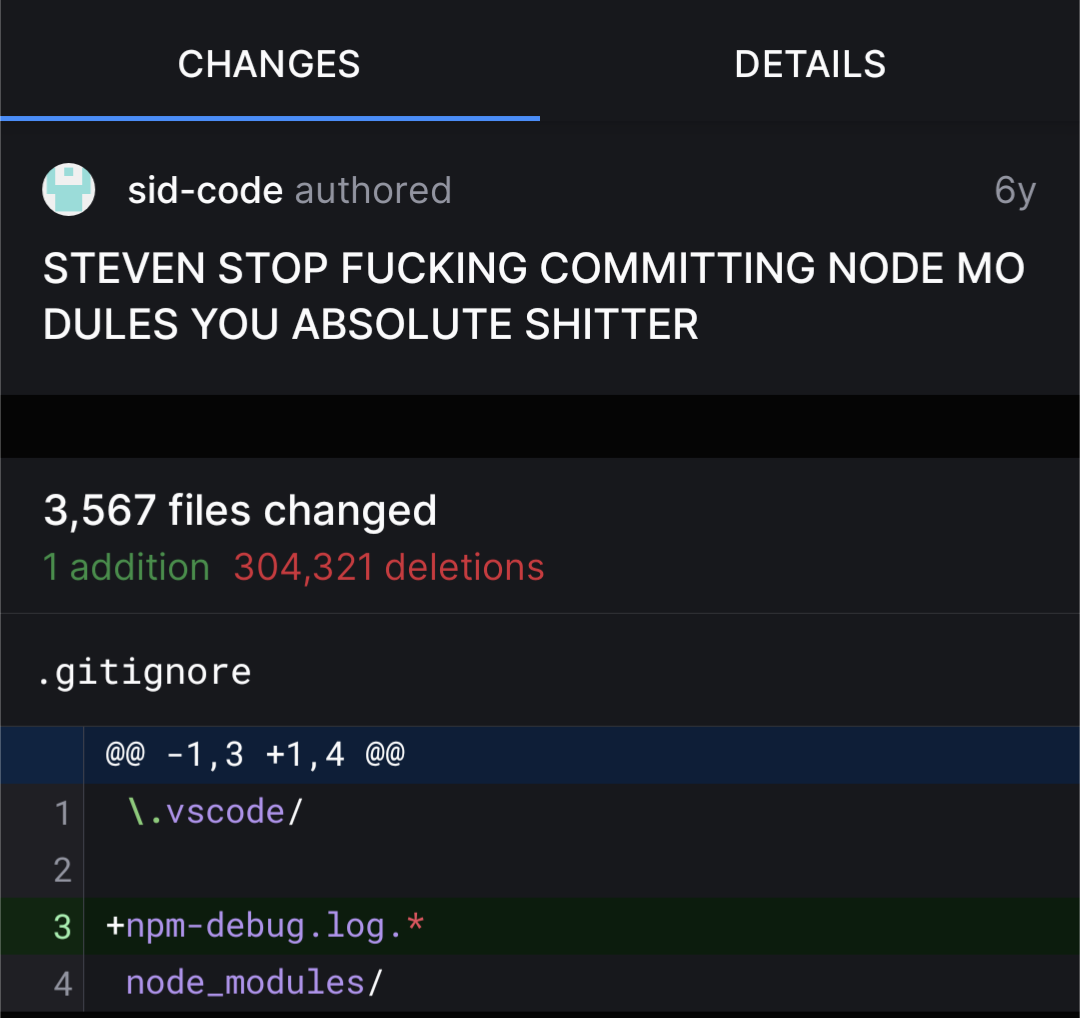this post was submitted on 25 Apr 2024
672 points (97.3% liked)
Programmer Humor
19804 readers
647 users here now
Welcome to Programmer Humor!
This is a place where you can post jokes, memes, humor, etc. related to programming!
For sharing awful code theres also Programming Horror.
Rules
- Keep content in english
- No advertisements
- Posts must be related to programming or programmer topics
founded 2 years ago
MODERATORS
you are viewing a single comment's thread
view the rest of the comments
view the rest of the comments

From github's blog:
Maybe the hashes aren't different, but the important part is that comparisons beyond the fetched depth don't work: git can't know if a shallowly cloned repo has a common ancestor with some given commit outside the range, e.g. a tag.
Blobless clones don't have that limitation. Git will download a hash+path for each file, but it won't download the contents, so it still takes much less space and time.
If you want to skip all file data without any limitations, you can do
git clone --filter=tree:0which doesn't even download the metadataYes, if you ask about a tag on a commit that you don't have git won't know about it. You would need to download that history. You also can't in general say "commit A doesn't contain commit B" as you don't know all of the parents.
You are completely right that
--depth=1will omit some data. That is sort of the point but it does have some downsides. Filters also omit some data but often the data will be fetched on demand which can be useful. (But will also cause other issues likeblametaking ridiculous amounts of time.)Neither option is wrong, they just have different tradeoffs.
But that's my point: instead of things weirdly not working, they will work instead.